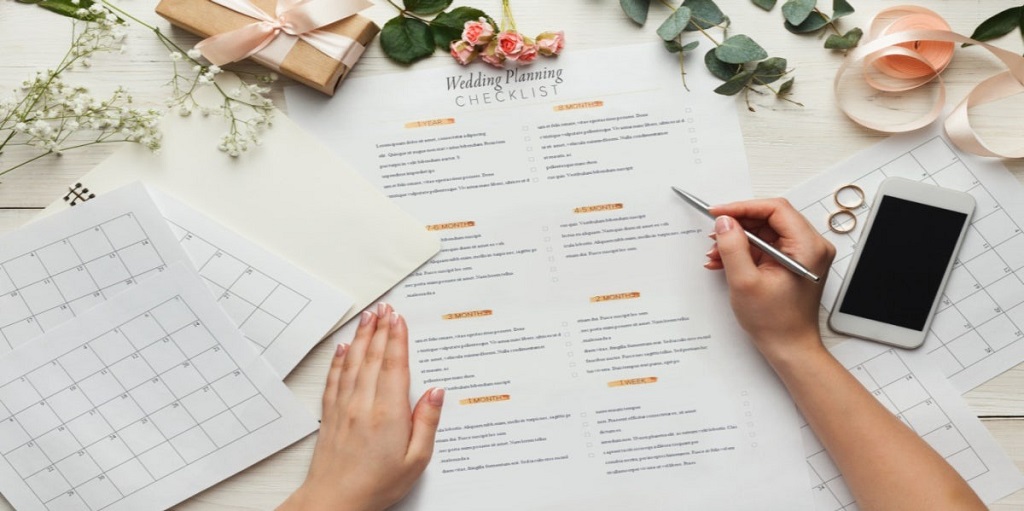Planning your dream wedding planner checklist can feel overwhelming, but with the right approach, it becomes an exciting journey. Many couples find inspiration and guidance through resources like Wedding Style Blog, which offers countless ideas and real-world examples. However, staying organized is key to ensuring every detail falls into place seamlessly.
A comprehensive approach to wedding planning starts with understanding the timeline. Most couples benefit from beginning their planning process twelve to eighteen months before their big day. Additionally, having a structured plan helps prevent last-minute stress and ensures nothing important gets forgotten.
Creating a detailed wedding planner checklist becomes your roadmap to success. This systematic approach breaks down overwhelming tasks into manageable steps. Therefore, couples can focus on enjoying their engagement while staying on track with essential preparations.
Getting Started: 12-18 Months Before
The earliest planning phase sets the foundation for your entire wedding. During this period, you should establish your basic framework and make fundamental decisions that will guide all future choices.
First, determine your wedding budget and stick to it. Most financial experts recommend allocating funds across different categories: venue (40-50%), catering (25-30%), photography (10-15%), and miscellaneous expenses (15-20%). However, these percentages can vary based on your priorities.
Next, create your guest list estimate. This number directly impacts venue selection and catering costs. Additionally, discuss your vision with your partner to ensure you’re both aligned on the style and atmosphere you want to create.
Choose your wedding date and book your venue. Popular venues fill up quickly, especially during peak wedding seasons. Therefore, flexibility with dates can provide more options and potentially better pricing.
Essential Planning: 9-12 Months Before
Once your foundation is set, focus on securing key vendors who will bring your vision to life. This phase requires research and decision-making on several important elements.
Book your photographer and videographer first, as talented professionals often have limited availability. Review portfolios carefully and meet with potential candidates to ensure their style matches your preferences. Furthermore, discuss package details and delivery timelines upfront.
Select your caterer and finalize menu options. Many venues have preferred caterer lists, while others allow outside vendors. Additionally, schedule tastings to ensure the food quality meets your expectations.
Choose your wedding officiant and discuss ceremony details. Whether you prefer religious, civil, or personalized ceremonies, book early to secure your preferred date. However, some officiants require pre-marital counseling sessions, so factor in this time requirement.
Mid-Planning Phase: 6-9 Months Before
This period focuses on personal elements that make your wedding uniquely yours. Additionally, you’ll handle important logistical details that require advance planning.
Order your wedding dress and schedule fittings. Wedding dresses typically require several months for ordering and alterations. Therefore, start this process early to avoid rush fees and stress.
Send save-the-dates to your guest list. This gives guests time to plan travel and accommodations. Furthermore, it helps you get a better sense of actual attendance numbers.
Book transportation for your wedding day. Consider transportation for the wedding party, guests, and yourselves. Additionally, research parking availability at your venue and arrange shuttles if necessary.
Plan your honeymoon and make reservations. Popular destinations fill up quickly, especially during peak travel seasons. However, booking early often provides better rates and more accommodation options.
Final Preparations: 3-6 Months Before
As your wedding approaches, attention shifts to finalizing details and confirming arrangements. This phase requires careful coordination and communication with all vendors.
Send formal invitations and track RSVPs. Most couples send invitations six to eight weeks before their wedding date. Additionally, include response cards with pre-addressed envelopes to make it easy for guests to reply.
Finalize catering numbers and menu selections. Most caterers require final headcounts two weeks before your event. Therefore, track RSVPs carefully and communicate changes promptly.
Confirm all vendor arrangements and create a detailed timeline. Schedule final meetings with each vendor to review expectations and logistics. Furthermore, create a master timeline that coordinates all vendors’ arrival and setup times.
Complete marriage license requirements in your state. Each state has different requirements and waiting periods. Additionally, ensure you understand what documentation you’ll need to bring.
Last-Minute Tasks: 1-3 Months Before
The final weeks before your wedding focus on last-minute details and ensuring everything runs smoothly. However, proper planning in earlier phases makes this period much more manageable.
Confirm final guest count and seating arrangements. Create detailed seating charts that consider family dynamics and guest preferences. Additionally, prepare place cards and table numbers.
Schedule final dress fittings and groomsmen attire pickup. Ensure all wedding party members have their complete outfits ready. Furthermore, designate someone to help with day-of wardrobe assistance.
Prepare ceremony programs and welcome bags. These personal touches help guests feel appreciated and provide useful information. However, keep programs simple to avoid last-minute printing stress.
Delegate day-of responsibilities to reliable friends or family members. Create detailed task lists for each person helping. Additionally, consider hiring a day-of coordinator if your budget allows.
The Week Before Your Wedding
Final preparations require calm organization and trust in your planning process. Most importantly, try to enjoy this exciting time rather than stress about small details.
Confirm all vendor arrival times and contact information. Create an emergency contact list with backup phone numbers. Additionally, share this information with your designated point person.
Pack for your honeymoon and prepare day-of emergency kits. Include items like stain remover, safety pins, pain relievers, and touch-up makeup. Furthermore, designate someone trustworthy to manage these supplies.
Relax and focus on the celebration ahead. Trust that your careful planning will pay off. However, remember that small imperfections often go unnoticed by guests who are there to celebrate your love.
Managing Wedding Stress Successfully
Planning a wedding naturally involves some stress, but effective strategies can minimize overwhelming feelings. Additionally, maintaining perspective helps you enjoy the engagement period.
Break large tasks into smaller, manageable steps. Tackle one category at a time rather than trying to handle everything simultaneously. Therefore, you’ll feel more accomplished and less overwhelmed.
Communicate openly with your partner about decisions and concerns. Regular check-ins help ensure you’re both comfortable with choices being made. Furthermore, shared decision-making strengthens your partnership.
Set boundaries with well-meaning family and friends. While input can be valuable, too many opinions can create confusion and stress. However, be diplomatic when declining suggestions that don’t align with your vision.
Budget Management Tips
Staying within budget requires discipline and creativity. Most couples find ways to save money without sacrificing their vision. Additionally, prioritizing spending on elements most important to you creates better overall satisfaction.
Track expenses carefully using spreadsheets or wedding planning apps. Regular monitoring prevents overspending and helps identify areas where you might need to adjust. Therefore, you can make informed decisions about where to splurge or save.
Consider DIY projects for non-essential elements. Centerpieces, favors, and signage offer opportunities for personal touches that save money. However, be realistic about your time and skill level.
Research off-season and weekday pricing options. Many vendors offer significant discounts for less popular dates. Additionally, morning or afternoon celebrations often cost less than evening events.
Read More Also: Best Home Printer for Graphic Design Students
Conclusion
A well-organized wedding planner checklist transforms the complex process of wedding planning into an enjoyable journey. By following a structured timeline and breaking tasks into manageable phases, couples can create their dream celebration without overwhelming stress. Remember that the most important element is celebrating your love with family and friends. Additionally, trust in your planning process and embrace the excitement of this special time in your life.
Read More Also: Baking Soda Solution for White Fungus Control
Frequently Asked Questions
Q: When should I start planning my wedding?
A: Most couples should begin planning 12-18 months before their desired wedding date. This timeline allows sufficient time to book popular venues and vendors while avoiding rush fees and limited availability.
Q: What percentage of my budget should go toward different wedding elements?
A: Generally, allocate 40-50% for venue and catering, 10-15% for photography, 10% for flowers and decorations, 10% for music and entertainment, and 15-20% for miscellaneous expenses including attire and transportation.
Q: How do I handle disagreements with family about wedding decisions?
A: Communicate your vision clearly and respectfully. Set boundaries early about decision-making roles. Remember that this is your celebration, but consider compromising on less important elements to maintain family harmony.
Q: What should I do if vendors cancel last minute?
A: Always have backup vendor contacts ready. Review contracts to understand cancellation policies. Consider wedding insurance to protect against vendor failures and other unexpected issues.
Q: How can I reduce wedding planning stress?
A: Break tasks into smaller steps, delegate responsibilities to trusted friends or family, maintain open communication with your partner, and remember that small imperfections won’t ruin your special day.




